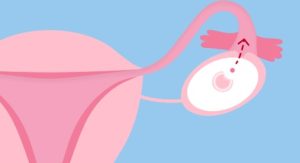Hey girl, have you started your first period yet?
If not, it’s coming soon and there’s no need to feel embarrassed or anxious. We’re here to give you the full lowdown on what to expect for your first period so you can feel prepared and empowered.
Learn how to track your menstrual cycle, what sanitary products to have on hand, how to manage cramps and mood swings, and how to talk to your mom or doctor if you have any concerns. Read on to get the answers to all your questions about this exciting new chapter of your life!

First Period Got You Like…What Just Happened Down There?
Your first period can be confusing and scary. You wake up one morning and bam, there’s blood in your underwear. Don’t worry, it’s totally normal and a sign your body is maturing into a woman’s. But what’s really happening here and what do you need to know?
Your uterus is shedding its lining. About once a month, the uterus builds up a lining of tissue and blood vessels in case a fertilized egg implants. If pregnancy doesn’t happen, the lining is shed – resulting in your period.
It usually lasts 3 to 7 days. The bleeding and flow may be heavy at first, then get lighter. You’ll need to use pads, tampons, or menstrual cups to soak it up. Change them frequently to avoid leaks and irritation.
Cramps are common and normal. Your uterus contracts to shed the lining, which can cause abdominal cramps, especially on the first day or two. Taking an over-the-counter pain reliever can help relieve cramps. Applying a heating pad to your abdomen may also provide comfort.
Your hormones are fluctuating. Changing hormone levels trigger your period and the ups and downs can affect your mood. Be extra kind to yourself this week – do relaxing activities, connect with supportive friends, and get enough rest.
Your first period is a big milestone, but don’t worry – you’ve got this! Understanding what’s happening with your body and how to properly take care of yourself will make the experience much less frightening. Before you know it, having your period will become second nature.
Bleeding 101: Decoding Your Menstrual Cycle
Have you noticed some bleeding in your underwear recently? Don’t panic – it’s probably just your first period arriving. Getting your first period is a totally normal part of becoming a woman, even if it can be a bit scary at first. Here’s what you need to know about this new experience in your life.
Bleeding 101: Decoding Your Menstrual Cycle
Your period usually lasts 3 to 7 days. The bleeding is caused by the shedding of the lining of your uterus, called the endometrium. The amount of blood can vary each month and range from light to heavy flow. Using pads, tampons and menstrual cups can help keep you clean and prevent leaks.
It’s normal for your cycle to be irregular at first. Cycles are counted from the first day of one period to the first day of the next period. A typical cycle lasts 21 to 35 days. Don’t worry if yours varies – it can take up to 2-3 years for a regular pattern to emerge.
You may experience cramps, bloating, and mood changes. Taking an over-the-counter pain reliever and using a heating pad can provide relief from cramps. Light exercise like walking or yoga may also help.
Your period means you’re growing into a healthy young woman. Even though it can be uncomfortable, try to adopt a positive attitude. Talk to a parent, doctor, or counselor if you have any concerns. With time, you’ll get used to your body’s new rhythm and gain confidence in managing your menstrual cycle.
Period Pro Tips: Stocking Your Period Prep Kit and Troubleshooting Common Issues
Once you get your first period, the key to managing it comfortably is being prepared. Stocking a period prep kit and knowing how to handle any issues will make your life so much easier during that time of the month.
Stock your kit
Here are some essentials to have on hand:
- Most comfortable sanitary pads – Try different types and absorbencies to see what you prefer.
- Pain relievers – For cramps, have ibuprofen or acetaminophen ready.
- Chocolate or snacks – In case cravings strike!
- Fresh underwear – Accidents happen, so extra pairs are good to have.
- Panty liners – For lighter days or as a backup.
- Wet wipes – To freshen up.
Be ready for surprises
Your period can sometimes throw you a curveball. Here are some common issues and how to handle them:
- Heavy bleeding: Use higher absorbency pads, for instance you can buy Essential extra-long pads and change them more frequently. See a doctor if it’s excessive.
- Bad cramps: Take an over-the-counter pain reliever. Apply a heating pad to your lower abdomen. Resting also helps.
- Irregular cycle: If your period is more than a week late or early, take a pregnancy test. See your doctor if irregularity continues as it can sometimes indicate an underlying issue.
- Spotting between periods: This can be normal, but see your doctor if it’s frequent or heavy. They may want to check for infection or hormonal changes.
- Mood changes: Feeling irritable or emotional before your period is caused by hormonal fluctuations. Be extra kind to yourself during this time. Talking to others who understand can help too.
With the right tools and knowledge, you’ll get the hang of it in no time. But don’t hesitate to ask a parent, doctor, or health educator if you have any other questions. Your period doesn’t have to be stressful – just be prepared and go with the flow!
So, there you have it, the basics of getting your first period. While it can be an overwhelming experience, don’t worry, every girl goes through it. Now you know what to expect, how to track your cycle, and the products to have on hand to make it as comfortable as possible.
The key is not to panic and remember that this natural process is what allows you to one day have children. Your period means your body is healthy and changing into a woman’s body. Though it may take some getting used to, you’ve got this!
Stay confident, ask questions if you have them, and take care of yourself. Before you know it, having your period will just become another normal part of your monthly routine.







